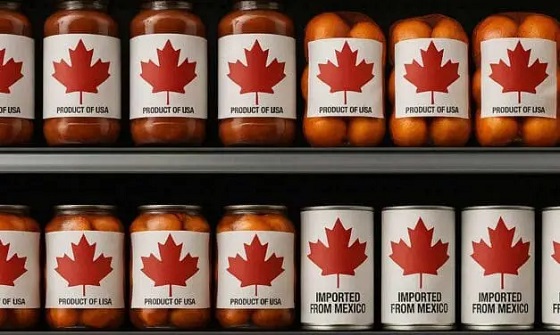Business
A Nation Built on Sand: How Canada Squanders Its Abundance
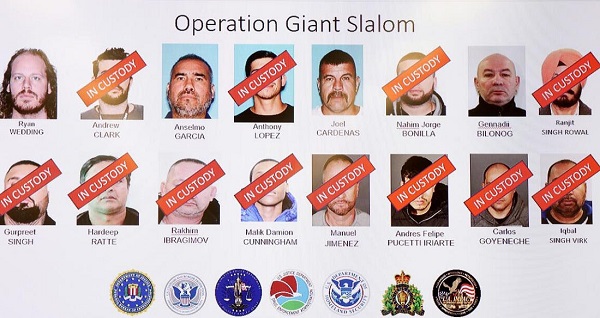
By Garry Clement
Columnist Garry Clement, former RCMP anti–money laundering expert, argues Canada’s leaders have built prosperity on sand — leaving the nation exposed to collapse unless urgent reforms are made.
Canada is celebrated abroad as a safe, prosperous, and open society. But beneath the surface, a far more precarious reality is taking shape. The pillars of our economy — land, real estate, natural resources, and immigration — have been left vulnerable to foreign manipulation, criminal exploitation, and political negligence. The result is what can only be described as a sandcastle economy — striking at first glance, but fragile. Like the parable of the house built on sand, it is a foundation vulnerable to give way when the storm comes.
Investigative journalist Sam Cooper has long warned that foreign capital and organized crime have deeply infiltrated Canada’s real estate market. On Prince Edward Island, the Bliss and Wisdom Buddhist group quietly acquired swaths of farmland and property, raising questions about how religious fronts with Chinese connections gained such leverage in a province with limited oversight. In Saskatchewan, Chinese investors have been buying up valuable farmland, raising alarms about food sovereignty and the lack of restrictions on foreign ownership of agricultural land. Meanwhile in British Columbia, governments continue to downplay or outright ignore the extent to which transnational money laundering has fueled a housing market now completely detached from local incomes.
All of this has unfolded against a backdrop of minimal transparency, weak beneficial ownership registries, and virtually no effective enforcement. The same blind spots that allowed casinos and luxury real estate in Vancouver to become laundromats for dirty money are now being replicated nationwide.
The most urgent threat tied to these financial blind spots is fentanyl. Canada has become one of the world’s top destinations for proceeds from synthetic drug trafficking — a crisis that has devastated families from coast to coast. Chinese triads, Mexican cartels, and local gangs launder profits through casinos, shell companies, and real estate deals. Yet federal legislation continues to lag behind, leaving law enforcement outgunned. Every toxic opioid death in Canada is not only a health tragedy, but also a reminder of how organized crime is exploiting our lax financial controls. While other countries have implemented tough anti-money laundering regimes, Canada remains dangerously complacent.
That same complacency extends to national security. Canada has repeatedly delayed designating Iran’s Islamic Revolutionary Guard Corps as a terrorist organization, despite overwhelming evidence of its involvement in financing terrorism and conducting influence operations abroad. Our allies — including the United States — have acted. Canada, however, remains an outlier, seemingly unwilling to confront the risk of Iranian proxy activity operating in plain sight within our borders.
Immigration policy reveals similar weaknesses. Foreign students, particularly from India, have become central to the financial survival of colleges and universities. Yet a growing number are not here primarily to study. Instead, education visas have become a backdoor into Canada’s workforce, particularly in industries such as trucking. The tragic Humboldt Broncos bus crash in 2018 exposed gaps in training and licensing in the trucking sector. Since then, reports have continued to surface of foreign students entering the industry without adequate skills — a risk not only to public safety but to the integrity of our immigration system. Ottawa has failed to adequately regulate this pipeline, preferring instead to rely on the tuition dollars and temporary labour it generates.
Editor’s Note: Forthcoming Bureau investigations, citing U.S. government sources, question how widespread fraud and Indian transnational crime capture of Canada’s commercial trucking industry have fueled the flow of fentanyl, cocaine, and methamphetamine — turning the country into a weak link for its international allies.
The threads running through these crises are clear: willful blindness, weak laws, and short-term political expediency. Land and natural resources are being sold without regard for sovereignty. Real estate markets are distorted by laundered money. Organized crime groups funnel fentanyl profits into Canada with ease. The IRGC operates without effective restriction. And the education system is exploited as a labour channel, with little oversight. Canada is, in effect, trading away its long-term security for short-term economic gains.
Politicians, bureaucrats, and regulators too often dismiss warnings as alarmist or xenophobic, when in fact they reflect real risks to the stability of the country. A sandcastle can stand tall on the shore, admired in the moment, but everyone knows what comes next. Unless urgent steps are taken — enforcing transparency in land ownership, restricting foreign control of farmland and resources, tightening anti-money laundering measures, confronting hostile foreign actors, and restoring integrity to the education and immigration systems — collapse is inevitable.
The signs are already here: families priced out of homes, farmers squeezed out of land, fentanyl overdoses climbing, and a public losing faith in the fairness of the system. Canada prides itself on being open and inclusive. But openness without vigilance is vulnerability. Like unwise stewards, our leaders have been gifted with a land of overflowing abundance, and yet they have squandered its potential through short-sighted choices. That failure must be corrected — immediately and wisely — if the nation is to not only thrive, but survive.
The Bureau is a reader-supported publication.
To receive new posts and support my work, consider becoming a free or paid subscriber.
Former senior RCMP officer Garry Clement consults with corporations on anti-money laundering, contributed to the Canadian academic text Dirty Money, and wrote Canada Under Siege, and Undercover, In the Shady World of Organized Crime and the RCMP
Agriculture
Canola or cars? Canada can’t save both

This article supplied by Troy Media.
 By Doug Firby
By Doug Firby
Canada is risking its most successful export to prop up an EV pipe dream
Picture a Canadian industry that contributes $43 billion to the economy and employs about 200,000 people.
There aren’t many of those in this country. Any industry of that size should be considered indispensable.
And yet, while there is (understandable) national hand-wringing over the future of Canada’s auto industry—especially in light of U.S. President Donald
Trump’s renewed tariff rampage—another industry, arguably more economically important, is being dangerously overlooked.
That industry is canola.
A summer drive through Manitoba, Saskatchewan or Alberta makes the scale hard to miss. Yellow fields stretch to every horizon. Canola production has exploded over the past decade and has become the very lifeblood of the Prairies.
Without it, large parts of those provinces would be economically barren and far more sparsely populated. We’re not talking about niche agriculture here—we’re talking about a foundational industry that keeps the lights on across three provinces.
Canada is the world’s largest exporter of canola, a crop used to produce cooking oil, animal feed and biofuels. Its export-driven success makes it a cornerstone of the Prairie economy.
Now consider this: Canada’s auto manufacturing industry contributes about $19 billion annually to GDP and employs around 125,000 people directly in assembly and parts manufacturing. Include distribution and aftermarket services, and you get a bigger figure, but the core numbers still pale in comparison to canola.
So, here’s the uncomfortable question: If you had to sacrifice one, which would it be?
It’s a Hobson’s choice. Nobody wants to lose either. But Canada has been pushed into a position where something has to give.
The Trudeau government—and before that, the Biden administration—imposed 100 per cent tariffs on made-in-China electric vehicles (EVs). The logic was straightforward: protect the billions being pumped into Canada’s auto sector and turn the country into a hub for EV innovation and production.
It was a defensive move: one meant to slow China’s dominance in the global EV market and give domestic manufacturers room to grow. Without it, cheap, wellbuilt Chinese EVs would undercut Canadian and North American models before they ever left the factory floor.
But China doesn’t take these things lightly. In retaliation, it slapped a 76 per cent tariff on Canadian canola. Prairie farmers, many of whom are already grappling with rising costs and unpredictable weather, are now wondering if their main market is disappearing overnight.
China has long been Canada’s largest canola customer, though the relationship has had flare-ups, including temporary bans in past years tied to diplomatic disputes.
More than two-thirds of Canada’s exported canola goes to China. The latest tariff hike has already wiped out an estimated $1 billion in value. And there’s no clear end in sight.
Manitoba Premier Wab Kinew was blunt last week: Canada cannot afford to be in a trade war with both the United States and China. He suggested that, in the short term, Ottawa should direct EV tariff revenues to support canola producers. That may buy us some time. But the broader strategic question looms larger: With the U.S. under Trump becoming an increasingly unstable trade partner, and China punishing us for playing by American rules, where does Canada place its long-term bet?
It’s not an easy question to answer.
China is hardly an ideal partner. Its human rights record is abysmal, and its growing economic power often comes with strings attached. But we also can’t deny that it has already become the global manufacturing centre in many key sectors—including electric vehicles.
Then there’s the U.S. A longtime ally, yes, but under Trump, all bets are off. In January, he said of Canada, “We don’t need anything they have.” Not cars. Not oil. Not even niceties.
CUSMA—the Canada–United States–Mexico Agreement that replaced NAFTA—governs most of Canada’s trade with our two largest partners. If Trump reopens the deal—and with Trump, it’s usually safest to take him literally—the Canadian auto industry may not survive. Billions in subsidies and protective tariffs won’t matter if the largest market slams its door shut.
So, again: what should we protect?
New markets for canola are being pursued—in Europe, Japan and elsewhere. But they won’t match China’s scale anytime soon. Diversifying export markets takes years. Prairie farmers don’t have that kind of time.
Meanwhile, dreams of building a Canadian-made EV remain just that: dreams. The auto sector may eventually pivot and survive, but right now, it’s the one on life support. Canola is the industry that’s vibrant—unless we let it get crushed in a trade crossfire.
I lived in an auto town for over two decades. I know the stakes. I’ve seen what happens when plants close, when supply chains dry up, and when livelihoods vanish.
But we need to be realistic.
Canola is a winning industry. It feeds the economy, supports thousands of families and helps keep our rural communities alive. It doesn’t need endless
subsidies or federal cheerleading—it just needs stable access to markets.
That might mean giving ground on EV tariffs. That might mean swallowing some pride on the international stage. But Canada cannot afford to sacrifice a thriving sector to save one already on the brink.
If we’re going to make hard choices—and we will—let’s make the one that protects what still works.
Canada cannot lose canola.
Doug Firby is an award-winning editorial writer with over four decades of experience working for newspapers, magazines and online publications in Ontario and western Canada. Previously, he served as Editorial Page Editor at the Calgary Herald.
Troy Media empowers Canadian community news outlets by providing independent, insightful analysis and commentary. Our mission is to support local media in helping Canadians stay informed and engaged by delivering reliable content that strengthens community connections and deepens understanding across the country
Banks
Debanking is Ottawa’s quiet tool to crush dissent

This article supplied by Troy Media.
 By Lee Harding
By Lee Harding
The rise of debanking threatens free speech and financial rights. Canadians have a right to be worried
If you thought bank account freezes ended after the 2022 convoy, think again. “Debanking”—the practice of banks abruptly closing accounts, often without a clear explanation—is on the rise in Canada and the U.S., and it’s fast becoming a tool to silence dissent.
Alberta lawyer Eva Chipiuk is a recent debanking victim. On July 17, the Royal Bank of Canada (RBC) sent her a letter saying she could no longer have an account there. She posted RBC’s letter, which offered little explanation beyond stating her recent account activity was “outside of RBC’s client risk appetite,” on X. She was told to transfer her funds to another financial institution within 31 days.
In an interview with the Financial Post, Chipiuk said she had made two $1,000 transfers to cryptocurrency platform Shakepay Inc. over two consecutive days to buy Bitcoin. The second transfer was blocked by the bank and triggered an account freeze. She went to the bank to have her account restored. A few days after succeeding, she received the letter saying her accounts would again be closed until mid-August.
While banks often flag cryptocurrency transactions for review because of antimoney-laundering regulations, such activity is lawful.
If that alone were grounds for debanking, more than four million Canadians would be at risk. According to the Triple A Global Cryptocurrency
Report, about 10.1 per cent of Canadians own cryptocurrency.
However, buying crypto does not appear to be the real reason. Chipiuk represented protesters from the Freedom Convoy, which began in
opposition to COVID-19 vaccine mandates and sweeping pandemic restrictions, and cross-examined then-prime minister Justin Trudeau
in 2022 at the Public Order Emergency Commission hearings in Ottawa.
In 2022, Canadian banks froze $7.8 million from 200 accounts related to the convoy. A single mother in B.C. complained to her MP, Mark Strahl, that her bank account was frozen after giving a $50 donation to the convoy, which was legal at the time. In response, the prime minister and deputy prime minister said financial measures were meant only to target convoy leaders.
The convoy is over, but debanking is not. The Ombudsman for Banking Services and Investments opened 94 cases related to debanking in 2024 and 105 in 2023. A spokesperson for the organization told the Financial Post: “We are not able to challenge or change a bank’s decision. We are also generally not able to tell the consumer the bank’s reason for account closure.”
Debanking has also emerged as an issue in the United States. U.S. President Donald Trump complained about it in his Jan. 20 video conference with the World Economic Forum. He told Brian T. Moynihan, chair, president and CEO of Bank of America: “I hope you start opening your bank to conservatives because many conservatives complain that the banks are not allowing them to do business.”
Democratic Senator Elizabeth Warren agreed. At a Senate committee hearing on Feb. 8 entitled “Investigating the Real Impacts of Debanking in America,” she said: “Donald Trump was onto a real problem when he criticized Bank of America for its de-banking practices.”
Warren said de-banked U.S. customers “all reported common themes,” namely: “No warning. No explanation. No chance to dispute or appeal. They described how one day, all of a sudden, they lost their place in the banking system.” The Consumer Financial Protection Bureau has received 12,000 debanking complaints over the past three years. Georgia, Florida and Tennessee have introduced laws to curb debanking.
A completely de-banked person is left with only cash, but in Canada, Bill C-2 could significantly worsen their predicament. If passed, federal law will ban cash transactions of $10,000 or more to a business or non-profit for any given thing, whether that amount is in a lump sum or a series of payments.
Encroachments on free speech and financial rights are paving the way for a dystopian future, where those who refuse to bow to government diktat or bankfavoured ideologies are shut out of the financial system.
Canadians and Americans must defend their freedoms now, before a digital technocracy emerges to cancel and crush dissent.
Lee Harding is a research fellow for the Frontier Centre for Public Policy
Troy Media empowers Canadian community news outlets by providing independent, insightful analysis and commentary. Our mission is to support local media in helping Canadians stay informed and engaged by delivering reliable content that strengthens community connections and deepens understanding across the country.
-

 Energy1 day ago
Energy1 day agoOil prices sliding as the market anticipates peace in Ukraine
-

 Agriculture1 day ago
Agriculture1 day agoCanada should eliminate its supply management system—with or without Trump
-
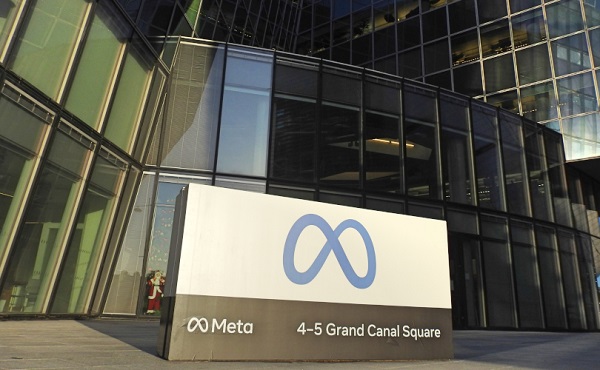
 Artificial Intelligence2 days ago
Artificial Intelligence2 days agoMeta joins forces with conservative activist Robby Starbuck to keep woke bias out of AI
-
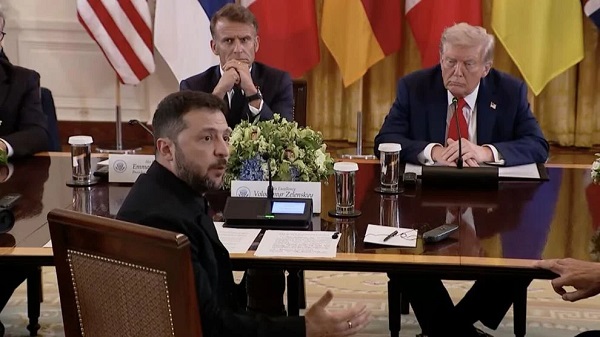
 International2 days ago
International2 days agoTrump holds high-stakes peace talks with Zelenskyy, European leaders
-
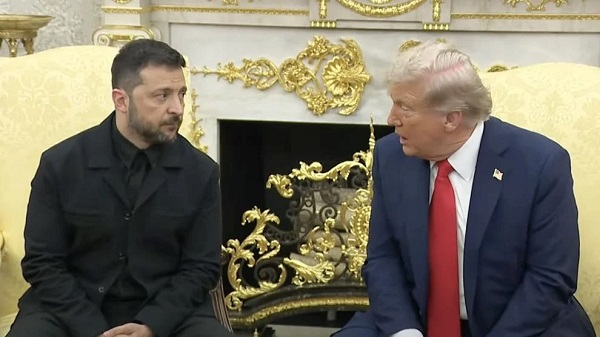
 International2 days ago
International2 days agoPutin, Zelenskyy to meet after ‘successful’ peace talks with Trump
-
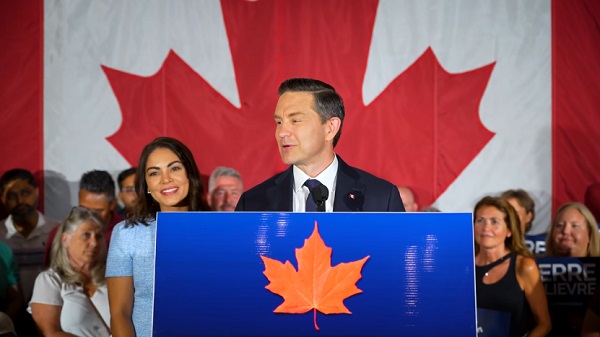
 Alberta1 day ago
Alberta1 day ago“Back in the saddle” Poilievre’s words after winning the Battle River-Crowfoot byelection
-

 Alberta1 day ago
Alberta1 day agoPoilievre easily wins Alberta by-election, will return to Parliament this fall
-
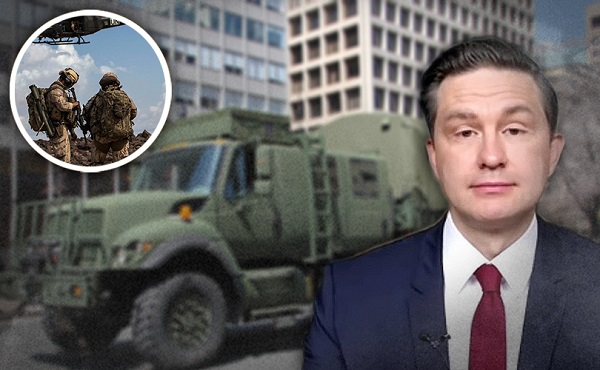
 armed forces1 day ago
armed forces1 day agoPoilievre vows to rebuild Canada’s military, replace ‘woke culture’ with ‘warrior culture’





